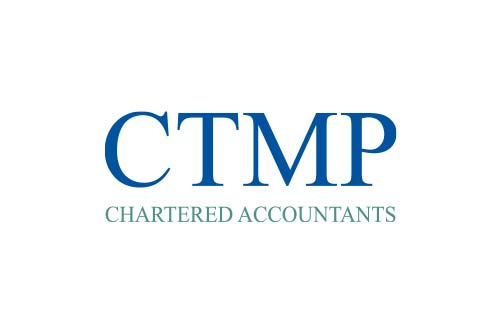
11 Feb Understanding Capital Gains Tax On Property Sales: A Comprehensive Guide
Whether you’re a seasoned property investor or a first-time seller, it’s essential to understand the Capital Gains Tax on property sales (CGT) and how it applies to your specific situation when selling property in Kent. Not knowing the ins and outs of the property Capital Gains Tax system can lead to unwanted surprises, especially regarding the taxes you owe.
That’s where CTMP Accountants come in. We offer expert guidance to ensure you make the most informed decisions regarding selling property tax implications and handling the associated property tax on sale. In this blog, we’ll break down the key aspects of CGT on property sales, providing you with all the information you need to navigate the complexities of UK tax law.
Whether dealing with real estate capital gains or looking for tax relief opportunities, our accounting service providers are here to help you manage your obligations and minimise your tax liability. For more information, call us on 0208 776 0200 or email us at info@ctmp.co.uk.
At CTMP Accountants, we provide expert advice and personalised solutions to ensure your tax obligations are met with ease and efficiency, guiding you every step of the way.
What Is Capital Gains Tax (CGT)?
Capital Gains Tax is a tax levied on the profit you make when selling an asset, such as property, that has increased in value. Essentially, it’s the tax you pay on the difference between the amount you paid for the property (or its market value if it was a gift) and the amount you sell it for. CGT could be a significant selling cost if your property has appreciated over time.
For example, if you bought a property in Kent for £200,000 and sold it for £300,000, your capital gain would be £100,000. After deducting any allowable expenses, reliefs, or exemptions, you would then pay CGT on that gain.
Who Needs To Pay CGT?
Whether you need to pay CGT depends on several factors, including your residency status and how the property was used.
- UK Residents: If you live in the UK and sell a property not your main home, you are generally liable to pay CGT on any profit made.
- Non-UK Residents: Non-residents who sell UK property may also be liable for CGT. This includes property held through a trust or company and direct ownership.
However, certain exemptions and reliefs, such as Private Residence Relief, can significantly reduce or even eliminate your CGT liability if the property is your main home.
How Is CGT Calculated On Property Sales?
The calculation of CGT can be straightforward once you understand the steps involved. Here’s a breakdown of how to calculate your capital gain:
- Determine the sale price: This is the amount you sold the property for or its market value if the sale was to a connected party (such as a relative).
- Deduct allowable costs: These are the costs directly associated with acquiring and selling the property, such as:
- Original purchase price
- Stamp duty land tax
- Legal and surveyor fees
- Improvement costs (e.g., extensions or major refurbishments)
- Note that regular maintenance costs (like painting or gardening) are not allowed.
- Calculate the gain: Subtract the total allowable costs from the sale price to determine your capital gain. If the result is positive, this is the amount you will be taxed on.
- Apply for reliefs and exemptions: Check whether any reliefs or exemptions apply once you gain capital. For instance, if the property was your primary residence, Private Residence Relief may be available to reduce or eliminate your tax bill.
- Apply the CGT rate: The rate of CGT you pay depends on your income tax band. For the 2024/25 tax year, the rates are as follows:
- 18% for basic rate taxpayers
- 24% for higher or additional rate taxpayers
Reliefs And Exemptions That Can Reduce CGT Liability
Several key reliefs and exemptions could reduce the amount of CGT you pay:
- Private residence relief: If the property you sold was your main home for all or part of your ownership period, you may qualify for this relief, reducing your CGT liability significantly. For example, if you lived in the property for the entire time you owned it, you may be exempt from paying any CGT. Even if you were absent for specific periods (such as working abroad), you could still qualify for relief.
- Lettings relief: If you rented out part or all of the property while you lived there, you might be eligible for Lettings Relief, which can reduce the amount of the gain subject to CGT. However, the relief applies only if you have occupied the property as your primary residence for some time.
- Annual exempt amount: Each individual has an annual exemption of £3,000 (for the 2024/25 tax year). This amount can be deducted from your capital gain before CGT is applied, potentially reducing the tax you pay.
- Other reliefs: In some cases, additional reliefs may be available, such as relief for certain business assets. Always seek professional advice to determine which reliefs you qualify for.
Reporting And Paying CGT
Understanding your obligations regarding reporting and paying CGT on property sales is essential. In most cases, CGT must be reported via a UK Property CGT Return, and the tax must be paid within 60 days of the sale completion. Failure to meet this deadline can result in penalties and interest.
For UK residents, if the gain is covered by reliefs (like Private Residence Relief) or the property is sold at a loss, no CGT may be due, and there may be no need to file a return. However, if CGT is payable, the 60-day deadline must be followed.
For non-UK residents, the reporting requirement applies even if no CGT is due for non-UK residents. Non-residents may also face additional complexities, such as determining whether they are liable for tax in the UK and their country of residence.
Practical Tips For Property Sellers In Kent
- Keep detailed records: Thorough records of your property transactions, including purchase and sale receipts, improvement costs, and associated fees, are essential. Proper documentation will ensure accurate tax calculations and help in the event of an HMRC audit.
- Plan ahead: If you plan to sell a property, it’s worth consulting a tax professional early on. This will help you better understand your potential tax liabilities and any reliefs you may qualify for, enabling you to plan the sale more effectively.
- Seek professional advice: CGT tax laws can be complex, particularly for non-UK residents and those with multiple properties. A qualified accountant or tax advisor can help you navigate these rules and optimise your tax position.
Contact us
How CTMP Accountants Can Help You Minimise CGT
At CTMP Accountants, we have over 40 years of experience providing property tax planning and accounting services. If you’re looking to sell property in Kent and want to understand how CGT affects you, our team will guide you immediately. Our experienced chartered accountants provide tailored advice and practical strategies for minimising your tax liabilities.
Here’s how we can assist you:
- Expert tax planning: We’ll work with you to develop a tax-efficient strategy that aligns with your property goals, helping you manage CGT and other property taxes.
- Comprehensive property tax services: From tax calculations and compliance to advice on inheritance and Capital Gains Tax reliefs, we ensure all property taxes are handled with expertise.
- Transparent pricing: We offer clear, fixed fees for our services, with no hidden charges, so you’ll always know exactly what to expect.
Whether you’re selling a single property or managing a portfolio of rental properties, our expert team can help you reduce your Capital Gains Tax exposure and optimise your financial returns.
Contact CTMP Accountants today for a consultation. Let us help you optimise your property sale and reduce your CGT liability. Call us on 0208 776 0200 or email us at info@ctmp.co.uk to get started.
We look forward to supporting you with your property tax needs!


